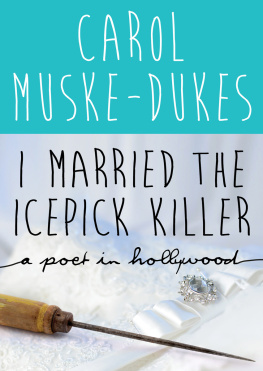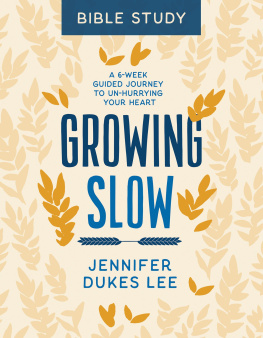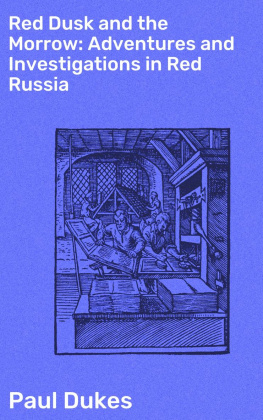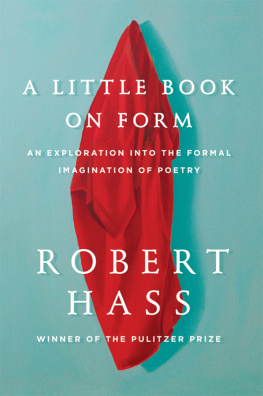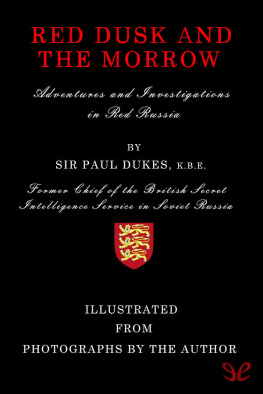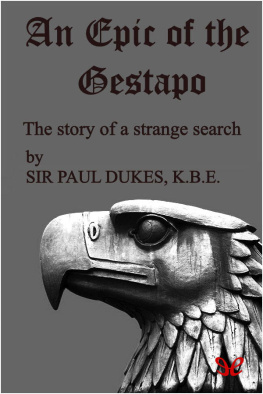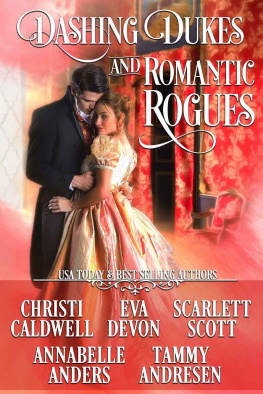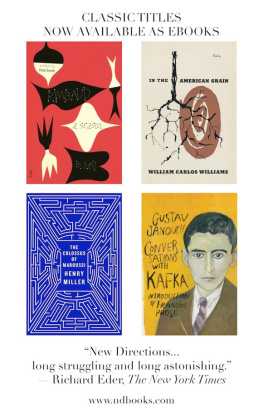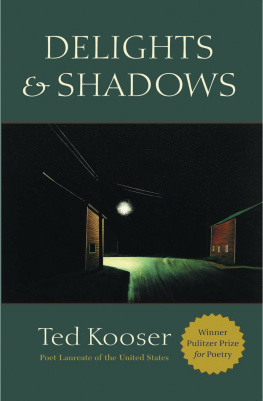I Married the Icepick Killer
A Poet in Hollywood
Carol Muske-Dukes

IN MEMORY OF DAVID COLEMAN DUKES
I dont have to live in New York. I could live in hell.
GRETA GARBO

EARLY BIRD BOOKS
FRESH EBOOK DEALS, DELIVERED DAILY
LOVE TO READ ?
LOVE GREAT SALES ?
GET FANTASTIC DEALS ON BESTSELLING EBOOKS
DELIVERED TO YOUR INBOX EVERY DAY!

CAROL MUSKE-DUKES
FROM OPEN ROAD MEDIA
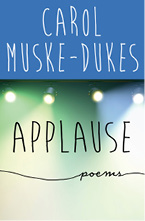
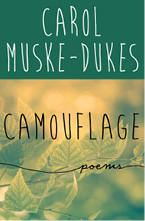
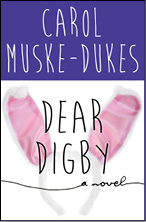
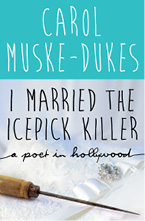
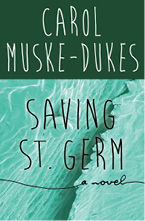
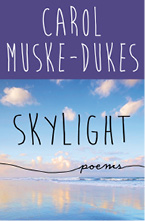
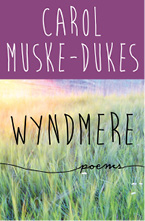


Find a full list of our authors and
titles at www.openroadmedia.com
FOLLOW US
@OpenRoadMedia




PREFACE
IT NEVER OCCURRED TO ME, as I was writing these essays, that I was writing, in part, an elegy. Yet now there is the unmistakable shadow of the valedictory drifting over what Ive written here, though most of the essays were completed before the death of my husband, David Dukes, who suffered a fatal heart attack on October 9, 2000. Yet he is present in so many of these pieces, both as subject and as subtext, his observations (about theater, about life, about art) often underscoring and informing my own.
There is also the shadow of what could be called (speaking somewhat fancifully) a mourning for the once-welcomed presence of art and arts ideal in ordinary life. And a little nod of regret for our diminished capacity to appreciate the imagination. Heres to the fiction of the originalimmortal, transformed beyond personality and ideology, beyond the twin tediums of the overly literal and the theoretical. At the risk of sounding melodramatic, we once longed to be more than ourselves, more than the endlessly mimetic manufactured selves that popular culture imposes on us. What art recognizes and speaks to, it seems to me, is the stranger in each of us. (After the horrors of September 11, 2001, this seems like fruitful speculation.) I borrow here from the lives of the poets, the actors, the interpreters of culture, the anarchist-Platonistsall estranged in Hollywood. The aspiration of these essays is not so much to investigate the unorthodox as to glance at what we take for granted.
It should be noted that the title essay, I Married the Icepick Killer, was published in The New York Times Magazine in the Lives section in March 2000. A gentle send-up of life with a performer, it elicited responses from a startling number of actors, industry professionals and their spousesand was later reprinted in Actors Equity magazine. It seems relevant here that a short meditation on the nature of life with a familiar stranger registered as strangely familiar to so many in the acting life.
Carol Muske-Dukes
Los Angeles, 2001
A POET IN HOLLYWOOD, TAKE TWO
NOT LONG AFTER I MOVED to Los Angeles from New York City, I attended a cocktail party with my actor-husband. At the party, which was full of film and TV types, a man asked me what I did for a living. I told him that I was a writer.
Right he said. Half hour or hour?
Neither I said, fixing him with an Oversoul gaze. Lifetime.
He smiled back. Oh, you work for cable, he said.
The anecdote above is (yes indeed!) a punchline about Hollywood which I originally included in a piece about poetry and The Industry (as its known)) for the New York Times Book Reviewan anecdote which Ive shamelessly dined out on ever since. But what appears to be yet another cheap shot at Hollywoods unenlightened insularity, finally remains testimony to the ongoing peculiarity of what it is like to be married to an actorin a one industry town or in the world at large, where poetry (like the act of writing itself) is generally misunderstood, Hollywoodized, trivialized, dismissed. So, predictably, my cocktail party questioner was bound to typecast my role as writer (Ill include poet, wordsmith and even the dread literary here) as low-rung word-crankor provider-of-words-for-actors-to-sayor words for actors to animate and directors to alter. Or, most likely, forgetting-you-as-you-speak-you-little-hacktype thing.)
Before I met him, my late husband, David Coleman Dukes (he never highlighted the Coleman, alas) played a madman, an icepick killer, in a detective thriller film called FIRST DEADLY SIN (based on the novel of the same title) shot in New York City and starring Frank Sinatra (as the detective pursuing David, the killer) with Faye Dunaway as Sinatras terminally ill wife. David was starring in Bent on Broadway with Richard Gere at the same time he was shooting this film. Sinatra lent David his driver, Jilly, to ferry him across town to the theater in time for the curtainat the end of each shooting day. Jilly never failed to deliver David on time for him to quickly re-invent himself in another role (Geres gay lover in a Nazi concentration camp) before the cross-town curtain. Sinatra was kind, Sinatra was generousmy late husband was also kind and generous. But, in the film, which I did not see until after we marriedmy kind and gentle husband was creepily sinister in his role as Icepick Killerand Sinatra was a devoted family man as well as a dogged sleuth, a model of rectitude.
The deep strangeness of the transformative process of the actor as he or she becomes someone else still confounds me. Actors use their bodies, their physicality, their voices (and all of their consciousness) to turn into that Otherthey go beyond dissembling, they cannibalize themselves in order to grow other selves into life. Whats particularly eerie is that actors draw on their real life and their own bodies as instrumentwhich means voice range, movement, facial and body expression, whole-being expressiveness. Actors (ok, like writers!) spy on other people, even as they spy on themselves. Often physical manifestations of character onstage or onscreen are scarily similar to those of the familiar person one sits across from at the breakfast tableor sleeps next to in bed. The way he laughs at his own jokes, the way he gestures with a piece of buttered toast, the way he answers the phone, blows a kiss goodbye. (More alarming: words or gestures associated with sexual intimacy that show up onscreen!) But then, there are the wildly unfamiliar embodiments too. As in: how did my spouse of several years end up turning into such a completely convincing serial murderer?

